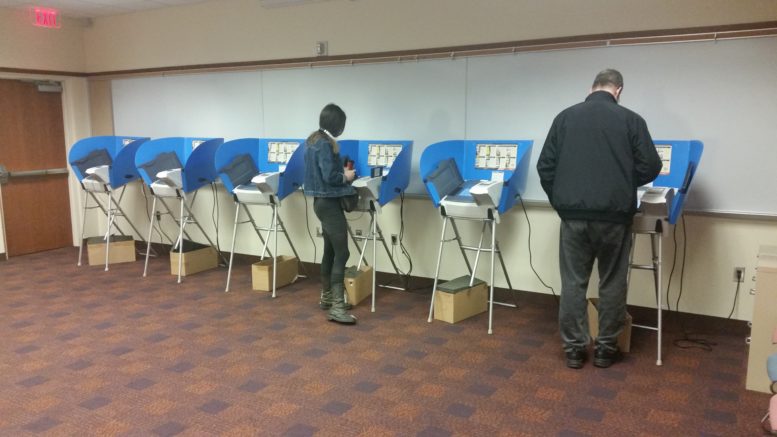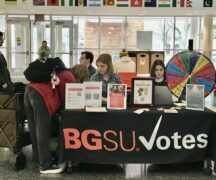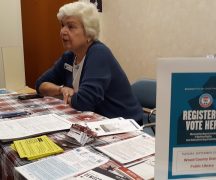By JAN LARSON McLAUGHLIN
BG Independent News
Ohio is one of the 44 states refusing to give President Donald Trump’s elections commission all the voter information requested.
Ohio Secretary of State Jon Husted, a Republican, has said he will provide the newly created Elections Integrity Commission with information that is already made public to campaigns and political parties. But Husted is drawing the line at Social Security numbers and driver’s license numbers.
The information on Wood County voters is already at the fingertips of the Ohio Secretary of State’s Office, according to Terry Burton, director of the Wood County Board of Elections.
“Our voter information already is linked with the state data bases,” Burton said on Friday. Though not privy to all the details, Burton said Ohio is handing over only public information.
“It sounds like everything he is supplying is public record that could be accessed by anyone else,” Burton said of Husted.
The Elections Integrity Commission requested all 50 states to submit full voter information, including registrants’ full names, addresses, dates of birth, political parties, the last four digits of their social security numbers, a list of the elections they voted in since 2006, information on any felony convictions, information on whether they were registered to vote in other states, their military status, and whether they lived overseas.
Trump set up the commission to investigate undocumented widespread voter fraud in national elections. He has claimed 3 million votes were illegally cast in the presidential election last year, robbing him of the popular vote.
Husted said earlier this year that voter fraud is not widespread in Ohio and the presidential commission’s inquiry was not necessary.
Burton shares that opinion, and believes that states should manage elections and counties should maintain the voter rolls.
“I fall into the camp that voting and elections fall under the state’s purview,” Burton said. “I’m comfortable with how Ohio and Wood County have gone about the process.”
The county board of election’s ultimate responsibility is to make sure that everyone legally able to, who wants to vote, can do so. The board reaches out to try to take voters off the rolls if they have registered at new addresses, or if they can find death records. But Burton has no concerns about widespread voter fraud.
“I feel all our processes are as solid as they have ever been,” he said. “We have prided ourselves in our county in having the best data possible.”
Like other election officials across the nation, Burton does have concerns about sharing local voter data with a federal commission.
“Every time we pass that data on, I get concerned,” he said. “Then that risk expands. You lose control over being able to secure that data.”
Ohio isn’t alone in its reluctance to send Trump’s commission all the requested information.
Kentucky Secretary of State Alison Lundergan Grimes was reported as saying, “Kentucky will not aid a commotion that is at best a waste of taxpayer money and at worst an attempt to legitimize voter suppression efforts across the country.”
U.S. League of Women Voters President Chris Carson issued a statement. “There is no justification for this giant fishing expedition. The commission itself is a distraction from the real issue of voter suppression, and that efforts to ‘investigate voter fraud’ threaten our most fundamental voting rights.”
Mississippi’s Secretary of State Delbert Hosemann, a Republican, went a step further. “My reply would be: They can go jump in the Gulf of Mexico, and Mississippi is a great state to launch from,” Hosemann said in a statement.
When states began to express concerns about the legality of his administration’s efforts to investigate voter fraud, Trump criticized them on Twitter. “Numerous states are refusing to give information to the very distinguished VOTER FRAUD PANEL. What are they trying to hide?” Trump tweeted.
Trump appointed Kris Kobach, former Kansas secretary of state, to head the commission.
Kobach’s critics point to his record of illegally disenfranchising eligible voters. As Kansas’ secretary of state, he backed a system that was prone to purging legitimate voters from voting systems. Kobach also fought unsuccessfully in court to require verification of citizenship on voter registration forms.





